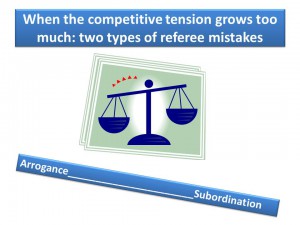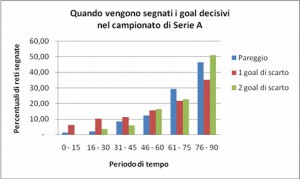It starts a new football season, this year even more important because it will end with the World Cup in Brazil. There is therefore a further reason for the players to want to play your best, with the aim to be among the 22-man squad for the World Cup in South America. In any event, each team will have its goal to be achieved: for some will not go back, for others to get into the UEFA or confirm the result of the previous season, for others it will be to win the championship or play the Champions League. Beyond the technical and tactical level possessed, each team will show its value only if the players on the field, the bench, the coach and the president will demonstrate a high level of emotional control. The management of the competitive stress affects everyone, without exception. In Italy we were often champions of stress. We have the record of coaches fired during the championship by presidents who can not contain their fears or their wounded narcissism also by a few negative results. We are also a League where the players make too many fouls and it is not true that the players would not be able to avoid them, because when they play at the European level they did less. In Italy they feel free to not respect the rules, protected by fans, coaches and presidents always ready to blame the referees, to talk about a conspiracy against their team or to not have understood that football permit the physical contrasts. The coaches knowing that half of them during the championship will be probably fired risk to live in a dramatic way the negative results of their team, for many it is a temporary job, certainly very well paid, but risky as climbing an eight thousand knowing the number of victims it kills every year. Despite these uncertainties, however, it’s absolutely necessary that the protagonists of football know to keep a cool head, reminding themselves the team’s objectives and how to achieve them. Self-control, effective stress management, aggression loyal and respectful of the opponents must be the basis of the behavior on the field, in other words it means knowing how to manage the emotions in a context, the match, which itself is a highly emotional situation. Therefore the teams have to live for 90 minutes this mental condition showing able to manage it effectively. This is in my opinion the challenge that each team must prepare to face and win each match, as well as the final result.
Read on http://www.huffingtonpost.it/../../alberto-cei/al-via-la-serie-a-una-sfida-alle-emozioni_b_3805629.html












